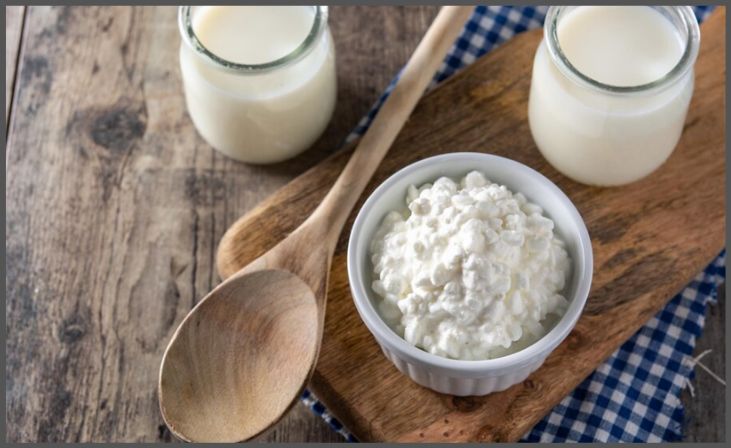Fermented foods have long been praised for their ability to promote gut health. By encouraging the growth of beneficial bacteria, they help maintain a balanced microbiome, which is crucial for digestion, immune function, and overall health. If you’re looking to boost your gut health, here are eight of the best fermented foods to try.
The 8 Best Fermented Gut Foods to Try Now
1. Sauerkraut

Sauerkraut is a popular fermented food made from finely chopped cabbage that has been fermented by lactic acid bacteria. This tangy, sour dish is rich in fiber, vitamins C and K, and iron. The fermentation process enhances the probiotic content of sauerkraut, making it a gut-friendly powerhouse. Not only does it improve digestion, but it also helps to reduce inflammation and supports immune health. For the best results, choose raw, unpasteurized sauerkraut, as pasteurization can destroy many of the beneficial bacteria.
2. Kimchi
Kimchi, a traditional Korean fermented food, is similar to sauerkraut but with more spice and variety. It’s usually made from napa cabbage and daikon radishes, combined with seasonings like garlic, ginger, chili pepper, and fish sauce. Kimchi is packed with probiotics, fiber, and an array of vitamins, including A, B, and C. It supports healthy digestion and has antioxidant and anti-inflammatory properties. In addition to being good for your gut, kimchi may also aid in weight loss and promote heart health.
3. Kefir

Kefir is a fermented milk drink that is similar to yogurt but has a thinner consistency and a more diverse range of probiotics. It’s made by adding kefir grains, which contain a mix of bacteria and yeast, to milk. The fermentation process results in a drink that’s rich in probiotics, calcium, protein, and B vitamins. Kefir is easier to digest than milk, making it a great option for those who are lactose intolerant. The probiotics in kefir help improve digestion, reduce bloating, and enhance gut flora diversity.
4. Miso
Miso is a traditional Japanese seasoning made from fermented soybeans, salt, and koji, a type of fungus. Miso paste is often used in soups, marinades, and sauces, adding a rich umami flavor to dishes. It’s rich in probiotics, antioxidants, and essential nutrients like manganese, copper, and zinc. Miso fermentation improves the bioavailability of nutrients and makes them easier to digest. It also helps support immune health, thanks to its high probiotic content.
5. Tempeh
Tempeh is another fermented soybean product, but unlike miso, it has a firm, dense texture and is often used as a meat substitute. Tempeh is made by fermenting cooked soybeans with a special fungus, resulting in a food that is high in protein, fiber, and probiotics. It’s also rich in vitamins and minerals, such as B12, iron, and calcium. The fermentation process enhances its digestibility, making it easier for your body to absorb its nutrients. Additionally, tempeh contains prebiotics, which feed the good bacteria in your gut.
6. Yogurt

Yogurt is one of the most well-known fermented foods and is made by fermenting milk with lactic acid bacteria. This process turns the milk into a creamy, tangy product that is rich in probiotics, calcium, and protein. Not all yogurts are created equal, so it’s important to choose those with live and active cultures to get the most probiotic benefits. Greek yogurt, for example, is a great option due to its higher protein content. Regular consumption of yogurt can improve digestion, alleviate symptoms of irritable bowel syndrome (IBS), and strengthen the immune system.
7. Kombucha
Kombucha is a fermented tea that has become popular for its probiotic content and unique tangy flavor. It is made by fermenting black or green tea with a culture of bacteria and yeast, often referred to as a SCOBY (Symbiotic Culture of Bacteria and Yeast). Kombucha is rich in probiotics, antioxidants, and organic acids, which can improve digestion, boost energy, and support detoxification. Some studies suggest kombucha may also help reduce inflammation and promote a healthy immune system.
8. Pickles (Fermented)
Pickles, particularly those made through natural fermentation rather than vinegar, can be a great source of probiotics. Fermented pickles are typically made by soaking cucumbers in a saltwater brine, allowing beneficial bacteria to grow. These bacteria help break down the sugars in the cucumbers, turning them into a sour and tangy snack. Fermented pickles are rich in gut-friendly probiotics, fiber, and vitamin K. However, it’s important to note that pickles made with vinegar don’t offer the same probiotic benefits, so always look for naturally fermented varieties.
How to Include Fermented Foods in Your Diet
Incorporating fermented foods into your diet doesn’t have to be complicated. You can add sauerkraut or kimchi as a side to your meals or use them as a topping for sandwiches and salads. Yogurt and kefir make excellent breakfast options, either on their own or mixed with fruits and granola. Tempeh can be used as a meat substitute in stir-fries or sandwiches, and miso can be added to soups or used as a marinade for vegetables and meats. Kombucha makes for a refreshing drink and can replace sugary sodas.
Benefits of Fermented Foods
The main benefit of fermented foods lies in their probiotic content. Probiotics are live bacteria that provide health benefits when consumed in adequate amounts, particularly for the gut. A healthy gut microbiome plays a critical role in digestion, nutrient absorption, immune function, and even mood regulation. Regular consumption of fermented foods can help maintain the balance of gut bacteria, leading to better digestion, reduced bloating, improved immunity, and even enhanced mental clarity.
Moreover, fermentation enhances the bioavailability of nutrients, making them easier to absorb. Fermented foods are also rich in antioxidants, vitamins, and minerals that support overall health. Some studies suggest that eating fermented foods may help reduce the risk of chronic diseases like heart disease, diabetes, and certain cancers.
Conclusion
Fermented foods are a delicious and natural way to support gut health. Whether you’re a fan of tangy sauerkraut, creamy yogurt, or refreshing kombucha, there are plenty of options to suit your taste preferences. By adding these probiotic-rich foods to your diet, you’ll not only improve digestion but also support your immune system and overall well-being. So, give these eight fermented foods a try and enjoy the many health benefits they offer!
FAQ
What are fermented foods?
Fermented foods are foods that have undergone a natural process where bacteria or yeast convert sugars into acids, gases, or alcohol. This process preserves the food and creates beneficial probiotics, which support gut health.
What are the health benefits of eating fermented foods?
Fermented foods are rich in probiotics, which can improve digestion, boost the immune system, and help balance the gut microbiome. They also enhance nutrient absorption, reduce inflammation, and may lower the risk of some chronic diseases.


